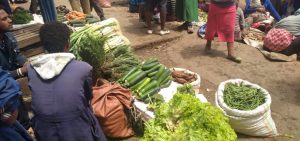ESSP Working Paper 145, by Kalle Hirvonen, Gashaw T. Abate, and Alan de Brauw.
Abstract: In early June 2020, we called by telephone a representative sample of nearly 600 households in Addis Ababa, Ethiopia to assess income changes and household food and nutrition security status during the COVID-19 pandemic (survey period covering May). This was the second administration of a COVID-19 related survey to these households, following an initial survey conducted in early May 2020 covering the situation of the survey households in April. More than two-third of the households indicated in the second survey that their incomes were lower than expected (up from 58 percent in April) and 45 percent reported that they are extremely stressed about the situation (up from 35 percent in April). Using a pre-pandemic wealth index, we find that less-wealthy households were considerably more likely to report income losses and high stress levels than were wealthier households. Compared to a period just before the pandemic (January and February 2020), indicators measuring food security have significantly worsened but have remained the same since April. During the pandemic, households are less and less frequently consuming relatively more expensive but nutritionally richer foods, such as fruit and dairy products. However, overall food security status in Addis Ababa is not yet alarming, possibly because many households have been able to use their savings to buffer food consumption. As the pandemic is still in an early stage in Ethiopia, it is likely that these savings will not last throughout the pandemic, calling for a rapid scale-up of existing support programs. Download the PDF.
